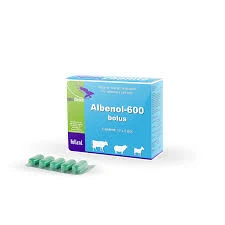- Afrikaans
- Albanian
- Amharic
- Arabic
- Armenian
- Azerbaijani
- Basque
- Belarusian
- Bengali
- Bosnian
- Bulgarian
- Catalan
- Cebuano
- Corsican
- Croatian
- Czech
- Danish
- Dutch
- English
- Esperanto
- Estonian
- Finnish
- French
- Frisian
- Galician
- Georgian
- German
- Greek
- Gujarati
- Haitian Creole
- hausa
- hawaiian
- Hebrew
- Hindi
- Miao
- Hungarian
- Icelandic
- igbo
- Indonesian
- irish
- Italian
- Japanese
- Javanese
- Kannada
- kazakh
- Khmer
- Rwandese
- Korean
- Kurdish
- Kyrgyz
- Lao
- Latin
- Latvian
- Lithuanian
- Luxembourgish
- Macedonian
- Malgashi
- Malay
- Malayalam
- Maltese
- Maori
- Marathi
- Mongolian
- Myanmar
- Nepali
- Norwegian
- Norwegian
- Occitan
- Pashto
- Persian
- Polish
- Portuguese
- Punjabi
- Romanian
- Russian
- Samoan
- Scottish Gaelic
- Serbian
- Sesotho
- Shona
- Sindhi
- Sinhala
- Slovak
- Slovenian
- Somali
- Spanish
- Sundanese
- Swahili
- Swedish
- Tagalog
- Tajik
- Tamil
- Tatar
- Telugu
- Thai
- Turkish
- Turkmen
- Ukrainian
- Urdu
- Uighur
- Uzbek
- Vietnamese
- Welsh
- Bantu
- Yiddish
- Yoruba
- Zulu
Dec . 12, 2024 10:33 Back to list
tylosin injection
Tylosin Injection Uses, Benefits, and Considerations
Tylosin, a macrolide antibiotic, is primarily used in veterinary medicine to treat bacterial infections in livestock and other animals. As an important tool in the management of various infections, tylosin injection has gained popularity due to its efficacy and relatively low toxicity profile. This article delves into the uses, benefits, and considerations associated with tylosin injection.
What is Tylosin?
Tylosin is derived from the bacterium *Streptomyces fradiae*. It is effective against a broad range of Gram-positive bacteria and certain Gram-negative organisms, making it a versatile antibiotic for managing infections. Tylosin works by inhibiting protein synthesis in bacteria, thereby preventing their growth and reproduction. This mechanism of action makes it particularly useful for treating respiratory, gastrointestinal, and soft tissue infections in a variety of animal species.
Uses of Tylosin Injection
Tylosin injection is commonly used in veterinary practices for several purposes
1. Treatment of Infectious Diseases It is effective in treating respiratory infections, metritis, and enteritis in cattle, pigs, and other livestock. By targeting the pathogens causing these infections, tylosin helps in reducing morbidity and mortality in affected animals.
2. Control of Mycoplasma Infections Mycoplasma species are often resistant to many conventional antibiotics. Tylosin has shown effectiveness against these organisms, making it valuable in controlling mycoplasmosis in animals.
3. Growth Promotion In some regions, tylosin is used as a growth promoter in food-producing animals. It helps improve feed efficiency and weight gain, although its use for this purpose has become controversial due to concerns about antibiotic resistance.
4. Prevention of Disease Tylosin can be administered prophylactically to at-risk animals, especially in stressful conditions like transportation or during weaning. Preventive use can help minimize the outbreak of infectious diseases.
Benefits of Tylosin Injection
The use of tylosin injection offers several benefits
tylosin injection

- Efficacy Tylosin demonstrates a strong antibacterial effect, particularly against infections that are challenging to treat with other antibiotics.
- Rapid Action The injectable form provides faster therapeutic effects compared to oral administration, which is crucial in acute infections.
- Well-Tolerated Tylosin is generally well-tolerated with a low incidence of adverse effects. Most animals experience minimal discomfort when receiving the injection.
- Versatility Its broad spectrum of activity makes tylosin a go-to antibiotic for a range of applications in different animal species.
Considerations and Challenges
Despite its benefits, several considerations should be accounted for when using tylosin injection
1. Antibiotic Resistance The overuse of antibiotics, including tylosin, can lead to the development of antibiotic-resistant bacteria. This raises concerns about food safety and public health.
2. Regulatory Limitations In some countries, the use of tylosin for growth promotion in livestock has been banned or restricted, necessitating careful adherence to local regulations.
3. Dosage and Administration Proper dosage is critical for effectiveness and minimizing side effects. Veterinarians must ensure that injections are administered correctly to optimize therapeutic outcomes.
4. Monitoring for Side Effects While rare, some animals may experience allergic reactions or localized reactions at the injection site. Monitoring animals post-injection is advisable to promptly address any adverse effects.
Conclusion
Tylosin injection is an important antibiotic in veterinary medicine, offering effective treatment for various bacterial infections in livestock and pets. When used responsibly and under veterinary guidance, it can contribute significantly to animal health and welfare. As with any antibiotic, it is imperative to balance the benefits against the potential risks of resistance and comply with regulatory standards. Continued research and responsible use practices will play a crucial role in ensuring that tylosin remains a valuable tool in veterinary care for years to come.
-
Guide to Oxytetracycline Injection
NewsMar.27,2025
-
Guide to Colistin Sulphate
NewsMar.27,2025
-
Gentamicin Sulfate: Uses, Price, And Key Information
NewsMar.27,2025
-
Enrofloxacin Injection: Uses, Price, And Supplier Information
NewsMar.27,2025
-
Dexamethasone Sodium Phosphate Injection: Uses, Price, And Key Information
NewsMar.27,2025
-
Albendazole Tablet: Uses, Dosage, Cost, And Key Information
NewsMar.27,2025













